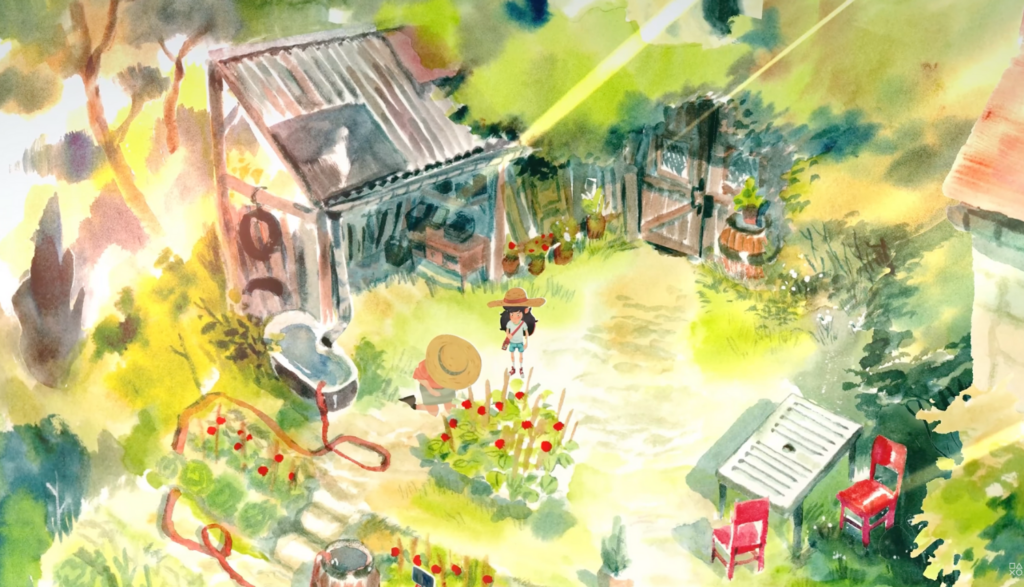
The name Dordogne may sound, to our American ears, as a fairly odd title for a video game. It refers to a certain hilly region in France—a place filled with a lush nature, easy-going rural life and the slow pace of yesteryear. It feels to most who see it like a place of memories. And that’s very appropriate for this reminiscence-focused game.
Dordogne is a simple, sweet-natured point-and-click adventure game that drills down on the memories of a 30-something young woman named Mimi. In fact, it’s Mimi’s lack of memories that brings her back to a little house in Dordogne to begin with.
The last time Mimi had been in this quaint little cottage was in 1982, during her 12th summer, when she visited her grandmother Nora. She remembers her gruff father dropping her off for a month. And she remembers her frustration at being out in the middle of nowhere without her friends. But she remembers little else—including anything about her life before that visit.
However, something happened during that mysterious summer that caused the pre-existing rift between Mimi’s father and grandmother to widen into a chasm. Mimi never saw Nora ever again.
But now that Grandma Nora has passed away, there’s something about that long-lost summer that is drawing Mimi back to the house before it’s cleaned out and sold. Mimi decides to return there and hopefully reclaim at least a part of what she lost back in 1982.
Gameplay wise, players make their way through and around the little house and scenic areas of Dordogne. They solve environmental puzzles and find clues and special mementos that help piece together Mimi’s coming-of-age tale during that special golden summer.
Mimi finds an old polaroid camera and flashes back to she and her grandmother snapping pictures at a lovely stream in the woods, for instance. She discovers kitchen items that reel in a memory of her first breakfast of the summer.
Each flashback is awash with vibrant watercolors that aren’t a part of Mimi’s more subdued present. And each puzzle or bit of turn-this-key-boil-that-water business that she undertakes is very tactile and detailed—pointing to life’s tiny nuances and small pleasures.
Each game chapter is focused on its own found memento and memory. And as the days and story beats of Mimi’s lost summer begin to fall into place, the game also has young Mimi record the events in a binder that Nora gives her. She creates pages filled with photos she’s taken, event stickers she’s found and poems she creates from specific words revealed in her conversations along the way.
Dordogne is by no means a taxing game. As noted above, it is very simple and sweet. The pace is slow and leisurely. The story of a grandmother and granddaughter connecting over the course of a lovely summer is lightly emotional and endearing. And the game’s watercolor backgrounds and bright, pretty locales are a delight for the eyes. The package as a whole is quite beautiful.
There aren’t really any content problems with this game other than one perilous near-death moment (that’s downplayed with a dreamlike quality) and the use of the word “d–n” at one point. But, that said, the game may not be particularly suited for younger players. Its pace and gentle nature is so slow and memory focused that younger kids might have a difficult time grasping and enjoying it.
Lovers of running and gunning in the crowd need not apply here. But those looking for a memory fueled sweet story might find Dordogne to be a beautiful place to linger.

After spending more than two decades touring, directing, writing and producing for Christian theater and radio (most recently for Adventures in Odyssey, which he still contributes to), Bob joined the Plugged In staff to help us focus more heavily on video games. He is also one of our primary movie reviewers.